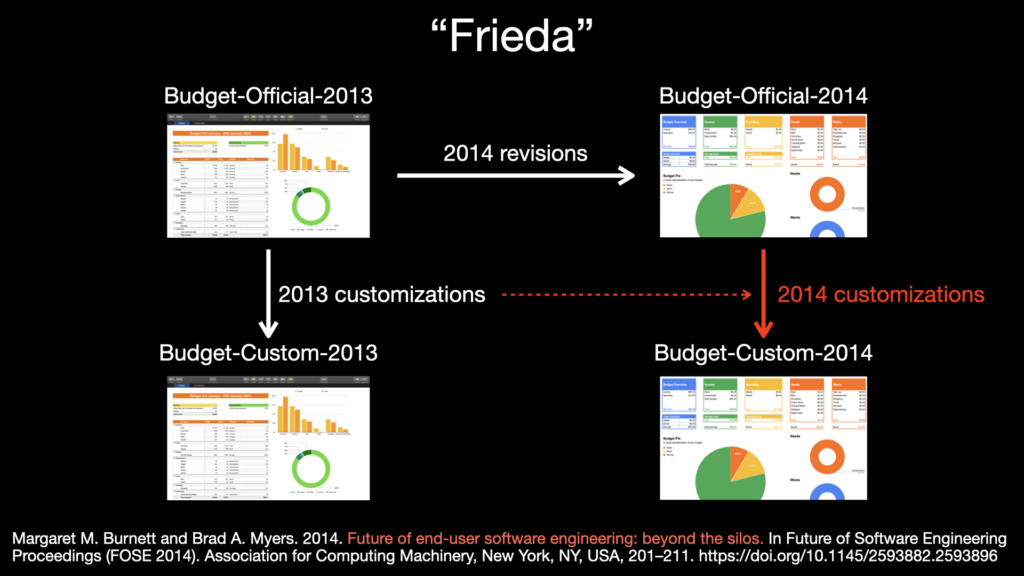Excerpted from: Future of end-user software engineering: beyond the silos [PDF].
For example, consider “Frieda“, an office manager in charge of her department’s budget tracking. (Frieda was a participant in a set of interviews with spreadsheet users that the first author conducted. Frieda is not her real name.) Every year, the company she works for produces an updated budget tracking spreadsheet with the newest reporting requirements embedded in its structure and formulas. But this spreadsheet is not a perfect fit to the kinds of projects and sub-budgets she manages, so every year Frieda needs to change it. She does this by working with four variants of the spreadsheet at once: the one the company sent out last year (we will call it Official-lastYear), the one she derived from that one to fit her department’s needs (Dept-lastYear), the one the company sent out this year (Official-thisYear), and the one she is trying to put together for this year (Dept-thisYear).
Using these four variants, Frieda exploratively mixes reverse engineering, reuse, programming, testing, and debugging, mostly by trial-and-error. She begins this process by reminding herself of ways she changed last year’s by reverse engineering a few of the differences between Official-lastYear and Dept-lastYear. She then looks at the same portions of Official-thisYear to see if those same changes can easily be made, given her department’s current needs.
She can reuse some of these same changes this year, but copying them into Dept-thisYear is troublesome, with some of the formulas automatically adjusting themselves to refer to Dept-lastYear. She patches these up (if she notices them), then tries out some new columns or sections of Dept-thisYear to reflect her new projects. She mixes in “testing” along the way by entering some of the budget values for this year and eyeballing the values that come out, then debugs if she notices something amiss. At some point, she moves on to another set of related columns, repeating the cycle for these. Frieda has learned over the years to save some of her spreadsheet variants along the way (using a different filename for each), because she might decide that the way she did some of her changes was a bad idea, and she wants to revert to try a different way she had started before.

